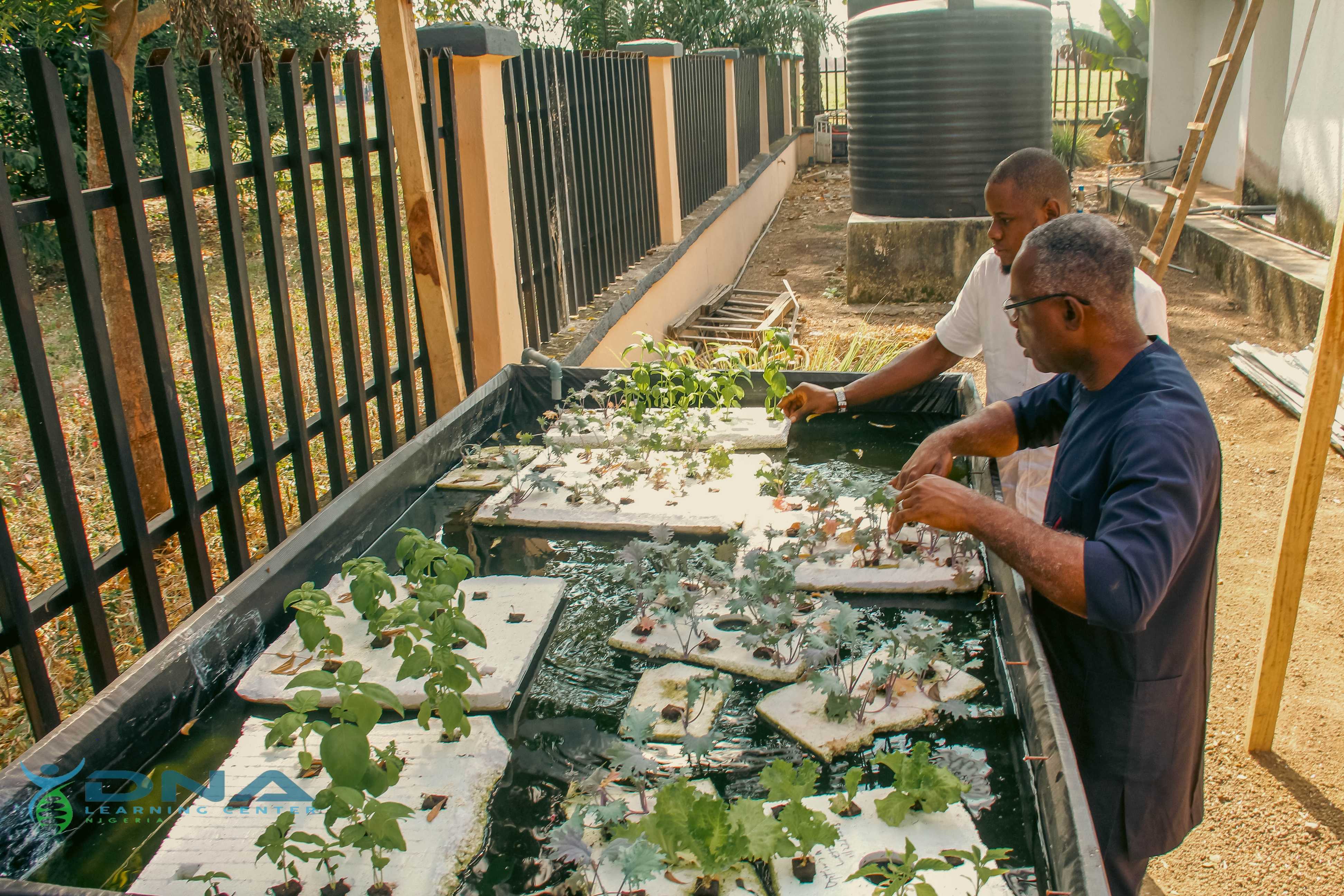GODFREY OKOYE UNIVERSITY'S DNA LEARNING CENTRE CULTIVATES INNOVATION IN SUSTAINABLE AGRICULTURE

In a groundbreaking initiative led by Professor George Ude at the DNA Learning Centre of Godfrey Okoye University, scientists are spearheading a pioneering project in soilless agriculture using a locally constructed aquaponics system. This innovative approach, combining aquaculture and hydroponics, not only promises pure organic farming but also holds the key to transforming Nigeria's agricultural landscape.
Funded by the British Council under the Innovation for African Universities program, and guided by the London School of Economics, the ongoing research project has successfully incubated nine STEM businesses, one of which focuses on establishing a functional aquaponics system. The aquaponics system utilizes nutrient-rich fish water from aquaculture to nourish vegetables grown hydroponically, marking a sustainable and symbiotic relationship between aquatic life and plant cultivation.
During a recent showcase, Vice Chancellor of Godfrey Okoye University, Rev. Fr. Prof. Christian Anieke expressed his delight at the exemplary work and research conducted at the DNA Learning Centre. He extended an invitation to young Nigerian scientists, urging them to partake in hands-on and inquiry-based training at the cutting-edge facility. Positioned as a hub for the modern biological sciences, including genomics, proteomics, transcriptomics, and metabolomics, the centre aims to bridge the gap in research infrastructure within African universities.
The DNA Learning Centre's state-of-the-art laboratory provides a platform for undergraduate and postgraduate STEM education through professional courses anchored in practical experience. Prof. Dr. George Ude, the Director of the Centre and Principal Investigator for the IAU British Council grant, emphasized the dearth of STEM-based businesses in Nigeria. He highlighted the transformative potential of aquaponic agriculture, envisioning its role in addressing medical, agricultural, and environmental needs across the African continent.
The showcased aquaponics system not only yields fresh vegetables year-round but also opens avenues for urban agriculture in areas with limited or no available land, a critical factor in densely populated urban areas. Prof. Ude believes that the integration of aquaponics into entrepreneurial ventures can revolutionize agriculture, making it a cornerstone of sustainable food production and enhancing food security in Africa.
As the DNA Learning Centre continues to pioneer innovative solutions, it stands as a beacon for aspiring scientists and entrepreneurs, showcasing the transformative power of STEM education and research in shaping the future of agriculture on the African continent.
